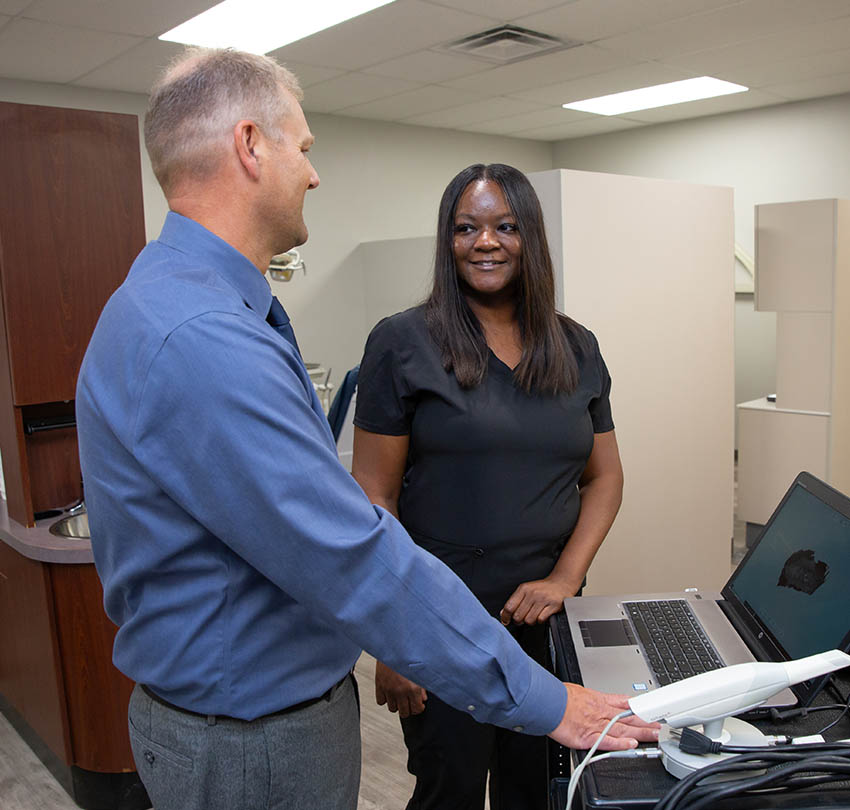George Wonsul
Great professional, courteous and friendly patient care.
Really like the new more open facility.

Whether it’s to stop pain, prevent further infection, or make space for future restorations, sometimes an extraction is the healthiest option. However, Dr. Gusfa will only recommend a tooth removal in Dearborn when needed. If it is the best course of action, we will:
Call 313-908-8409 for an appointment. If it’s a dental emergency, we’ll try to bring you in the same day you call us, whenever possible.
Tooth extraction is always a last resort. Dr Gusfa will try to save your tooth with a range of other preventive or restorative procedures. Gum disease treatment can stop an infection and restore the foundation that holds your teeth in place. Crowns and fillings can strengthen teeth weakened by decay or injury.
We typically recommend a removal when a tooth puts your smile at risk. Additionally, it’s often necessary for extensive restorative procedures like dentures. Your dentist can perform wisdom teeth removal in certain cases; however, for some complex needs, you may be referred to a specialist.
An extraction can:
Once Dr. Gusfa has removed your tooth, you’ll receive aftercare instructions to encourage the healing process. Then, once your mouth is ready, we’ll work with you on a replacement option. We offer dental bridges and implant options to give you a complete smile again.
Call 313-908-8409 for tooth removal in Dearborn. You can also schedule online.
Tooth extraction is usually considered as a last resort. Your dentist will always examine all options first, like crowns, fillings, or periodontal care, before recommending removal. If extraction is necessary, it’s often the best way to protect your overall oral health and prevent future complications.
The initial healing period typically lasts a few days. However, full healing may take several weeks. You will feel significantly better within the first few days. During that time, it’s important to follow your dentist’s aftercare instructions closely. Swelling and mild soreness are normal, but they usually subside quickly. If you are experiencing problems, contact our team right away.
For the first 24 to 48 hours, it’s best to stick to soft, cool foods like yogurt, applesauce, mashed potatoes, smoothies (without a straw), and scrambled eggs. Avoid hot, crunchy, spicy, or chewy foods during the healing period. They can irritate the area or dislodge the healing clot. As your mouth starts to feel better, you can gradually return to your regular diet. However, take your time and follow your dentist’s recommendations.